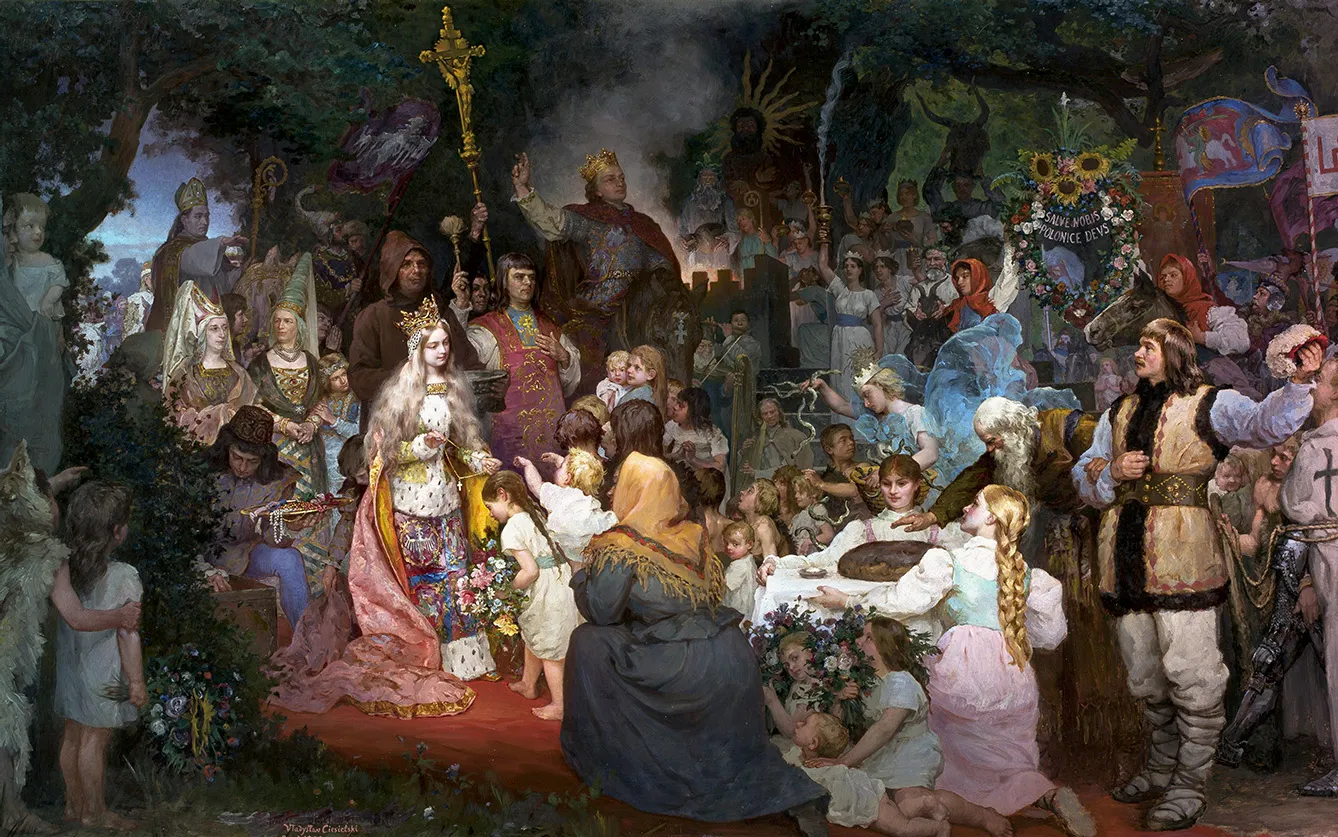Lithuanian nobility experienced great tension in the 15th and 16th centuries. The geopolitical location of the Grand Duchy of Lithuania was always rather demanding. The kingdom was continuously involved in some scale of warfare on the western and eastern borders. The Teutonic Order was a major threat in the West, as was the Grand Duchy of Moscow to the East. While the threat of medieval German knights was seriously diminished in the 1410 battle of Grunwald, the instability caused by Moscow only grew.
Lithuanian union with Poland
That became the major reason for the Grand Duchy of Lithuania seeking a union with Poland – political and military support against the growing power of the Duchy of Moscow. This relationship had two stages – the first was a peripheral personal joining, and then there was the full union.
The first stage happened in 1385, and the second in 1569. In the early stage, the union was only between the heads of the state, and in the later and final step, two states merged, creating a whole new sovereign body called the Polish-Lithuanian Commonwealth.
But why is it generally regarded as Poland? What role did Lithuania play, and what was the relationship between Lithuanian and Polish elites inside the state? To answer all this, we have once again to look at the Lithuanian nobility and particularly at the influences and tensions they experienced. And there were many – the spread of Protestantism, Counter-Reformation, the political threat of the East, and ambition to be in the West. But probably the most important of all these was the yearning to be on the Western cultural and political map. In fact, it was not just a mere whim but sometimes a matter of life and death. Safety, prosperity, and the future of the state – all that dependent on it. Thus, the only way led to the West.
Commonwealth: sharing culture
Naturally, on this road to the West was nothing else but Poland. Cultural styles, philosophical concepts, and even new words came from Poland. That is the major reason why the Lithuanian nobility was so keen to become more Polish. The more Polish you were, the more prestige, status, and influence in the state you could have. In addition to that, Poland was bigger in size and had more inhabitants and military strength. Thus, the dilemma of the noble class was quite clear – learning and speaking Polish offered better career paths, studying opportunities, and possibilities to take part in the political elite.
Therefore, much of the Lithuanian leading class became Polonized in the years of the Polish-Lithuanian Commonwealth. They were governing the country, but at the same time, many were simply ashamed of their mother tongue. Lithuanian was regarded as the langue of the peasants, a sign of lower-class status that had nothing to do with high culture. For quite a long time, it was considered impossible to write poetry or any kind of literature in Lithuanian.
This only began to change in the middle of the 19th century. More and more of the Lithuanian elites were influenced by ideas of romantic nationalism and began to value their local culture, customs, and language. But this is already another story of a different state that was born out of the Lithuanian national cultural movement in 1918. This state had put much more emphasis on local language and culture rather than political alliances. To sacrifice one for the other became unimaginable from then on.







